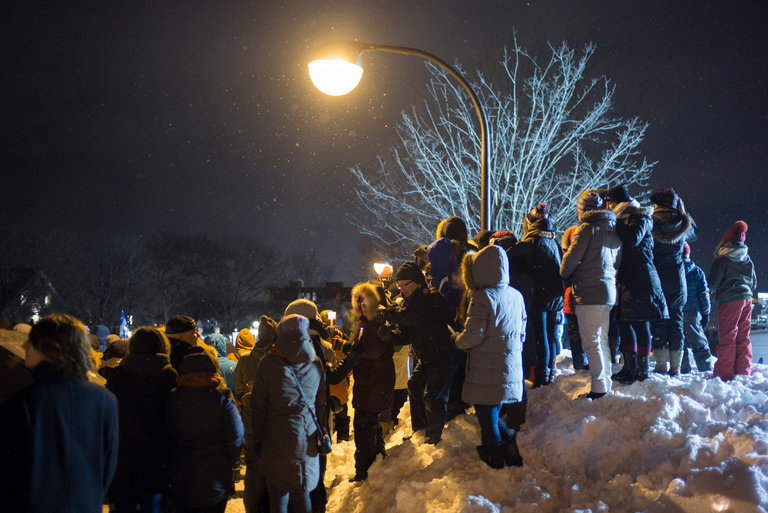TORONTO — François Deschamps stepped out of his apartment building in the Limoilou neighborhood of Quebec City recently and stopped when he saw a sticker wrapped around a light pole.
“Burn Your Local Mosque,” it read, around a silhouette of a Turkish-style mosque against an orange flame. He snapped a cellphone photo and added it to his collection of anti-Muslim propaganda popping up around the city.
Canada is a remarkably open society, a legacy of liberal politicians who set the thinly populated country on the path of aggressive multiculturalism decades ago. Last week, Statistics Canada reported that by 2036, nearly half of all Canadians would be immigrants or the children of immigrants — most of them what the country calls “visible minorities,” which means nonwhite.
That rapid transformation is stirring the most conservative elements of the white Canadian population, who see the country as their own, despite the fact that Europeans took the land from a patchwork of indigenous peoples who had long existed there.
Few people believe that this stirring, which is moderate by United States standards, contributed directly the shooting Sunday inside Quebec City’s largest mosque, in which six worshipers were killed and eight injured. And no evidence yet has emerged that the accused assailant, a Québécois university student, had ties to specific groups. But the attack has put many on guard that Canada’s embrace of Muslim immigration is raising tensions. Even the most radical groups seem to sense that expressing extreme views can be dangerous.
There are at least 100 right-wing extremist groups in Canada, according to two Canadian studies published last year, with most of them active in the provinces of Ontario, Quebec, Alberta and British Columbia.
While their targets include gays and lesbians, Jews and other minorities, Muslims have faced a sizable amount of the hostility. In 2014, the last year for which statistics are available, Canadian police forces recorded 99 religiously motivated hate crimes against Muslims — up from 45 in 2012, according to Statistics Canada.
Some critics have blamed Donald J. Trump’s nationalistic language, but right-wing extremism has long thrived in Canada among skinheads, white supremacists and others, said Barbara Perry, a global hate crime expert at the University of Ontario Institute of Technology in Oshawa, Ontario, and the lead author of a report published last year in the journal Studies in Conflict & Terrorism.
“A lot of that sentiment has been there,” said Ms. Perry, who said the internet has helped spread the ideology.
Canada has witnessed a flurry of nationalist groups proliferating in recent years, including the Soldiers of Odin, a white nationalist group that began in Finland. While the Canadian group has denied racist beliefs and members have participated in community foot patrols in cities like Edmonton and Vancouver, its main Canada Facebook page has anti-Muslim screeds and derogatory references to immigrants.
























Laissez un commentaire Votre adresse courriel ne sera pas publiée.
Veuillez vous connecter afin de laisser un commentaire.
Aucun commentaire trouvé